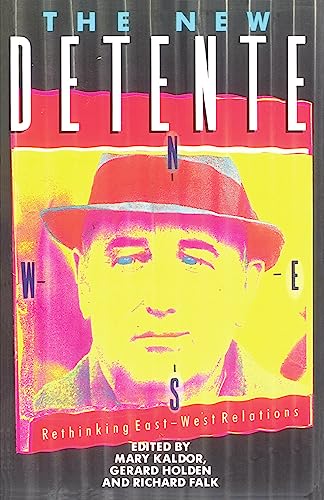Synopsis
The advent of Gorbachev has marked a new stage in East-West relations, sometimes described as the 'New Detente'. How is this new phase different from the detente of the 1970s? Is it merely part of an alternating cycle of confrontation and relaxation? Or could it be the beginning of the end of the Cold War in Europe?
This book addresses these questions from a novel perspective. While taking into account geopolitical and strategic considerations, its contributors focus on the underlying social, economic, and political conditions for a new detente. Running throughout is a preoccupation with the relationship between state and society, and an emphasis on the importance of democratic politics in both East and West.
The authors represent a range of radical opinion. Writers from Eastern Europe include official reformers, and representatives of the new informal movements such as the Greens in Hungary, Charter 77 in Czechoslovakia, Solidarity in Poland, and the Socialist Clubs movement in the Soviet Union. Western authors include local government, peace and green activists.
Contributors include: Richard Falk, Gerard Holden, Egbert Jahn, Boris Kagarlitsky, Mary Kaldor, Adam Michnik, Istvan Rev, Martin Ryle and Kate Soper, Jaroslav Sabata, Milan Simecka, Hilary Wainwright and Karsten Voigt.
About the Authors
Mary Kaldor is Professor of Global Governance at the London School of Economics, where she is also the Director of the Civil Society and Human Security Research Unit. She also teaches at the Institut Barcelona d'Estudis Internacionals. She was a founder member of END and Editor of the END Journal. Her books include The Imaginary War: Understanding the East-West Conflict (1990) and Europe from Below: An East-West Dialogue (1991).
Richard Falk was Professor of International Law Emeritus at Princeton University and since 2002 is Visiting Professor of Global Studies at the University of California, Santa Barbara.
"About this title" may belong to another edition of this title.
